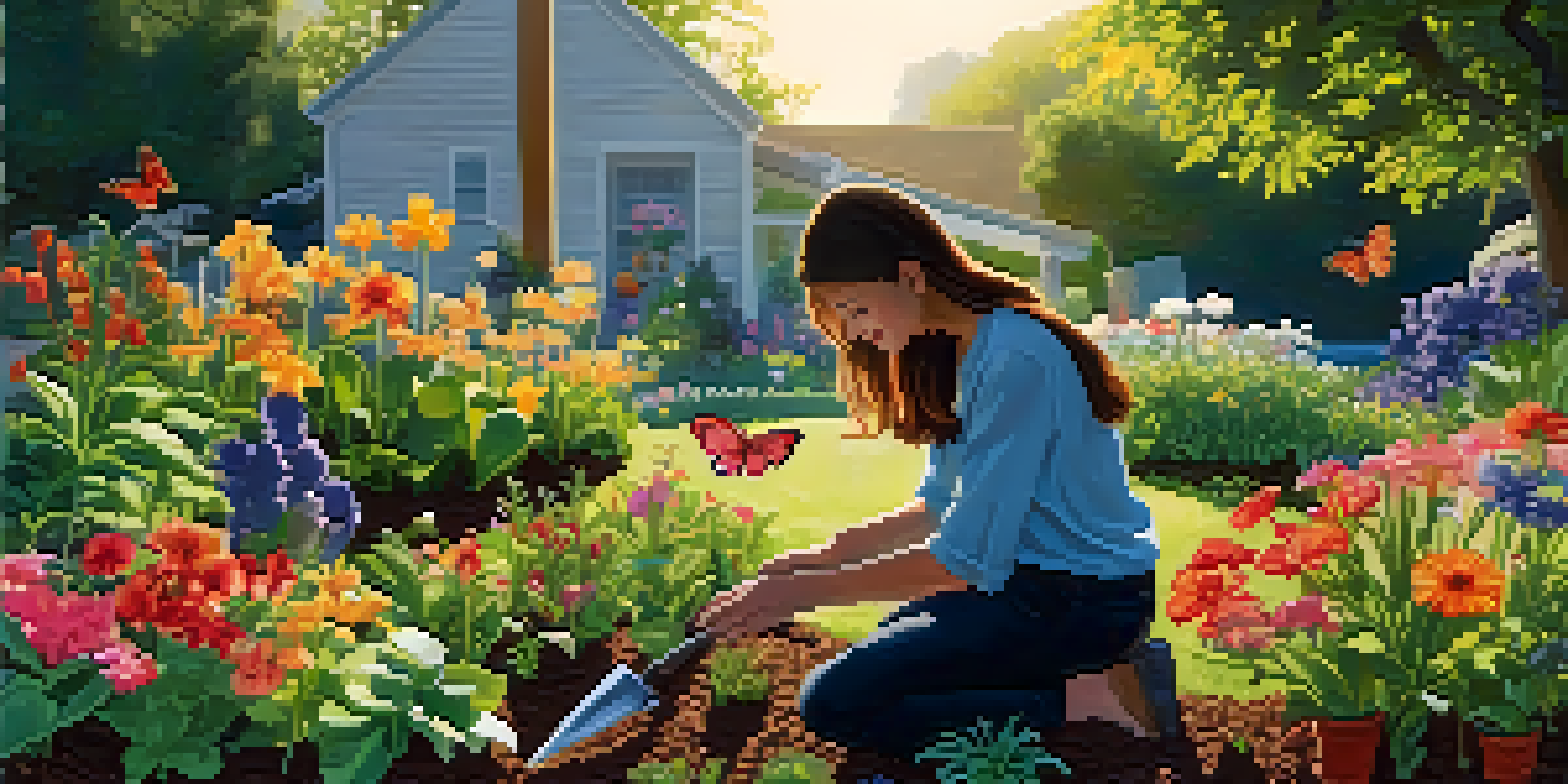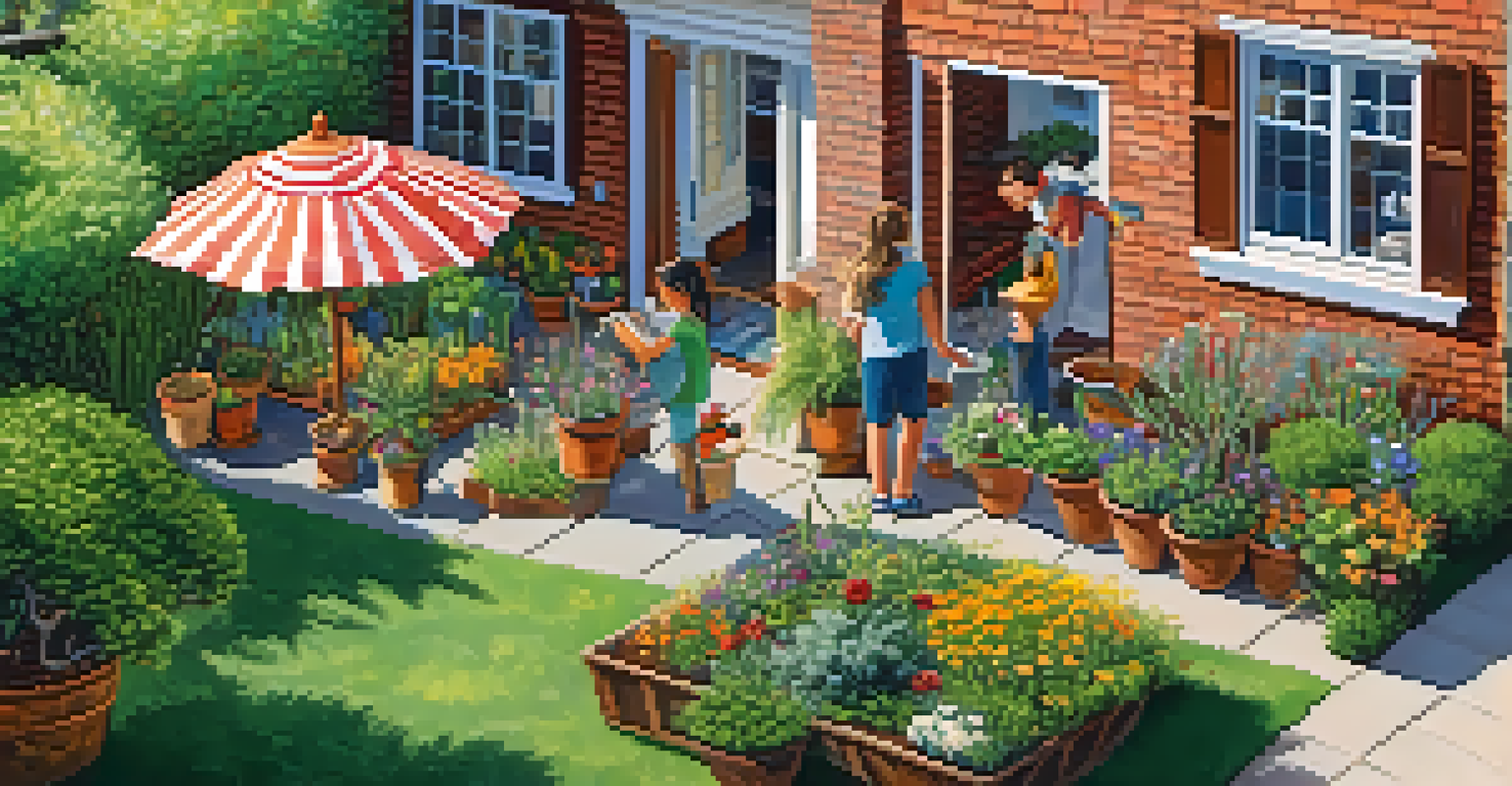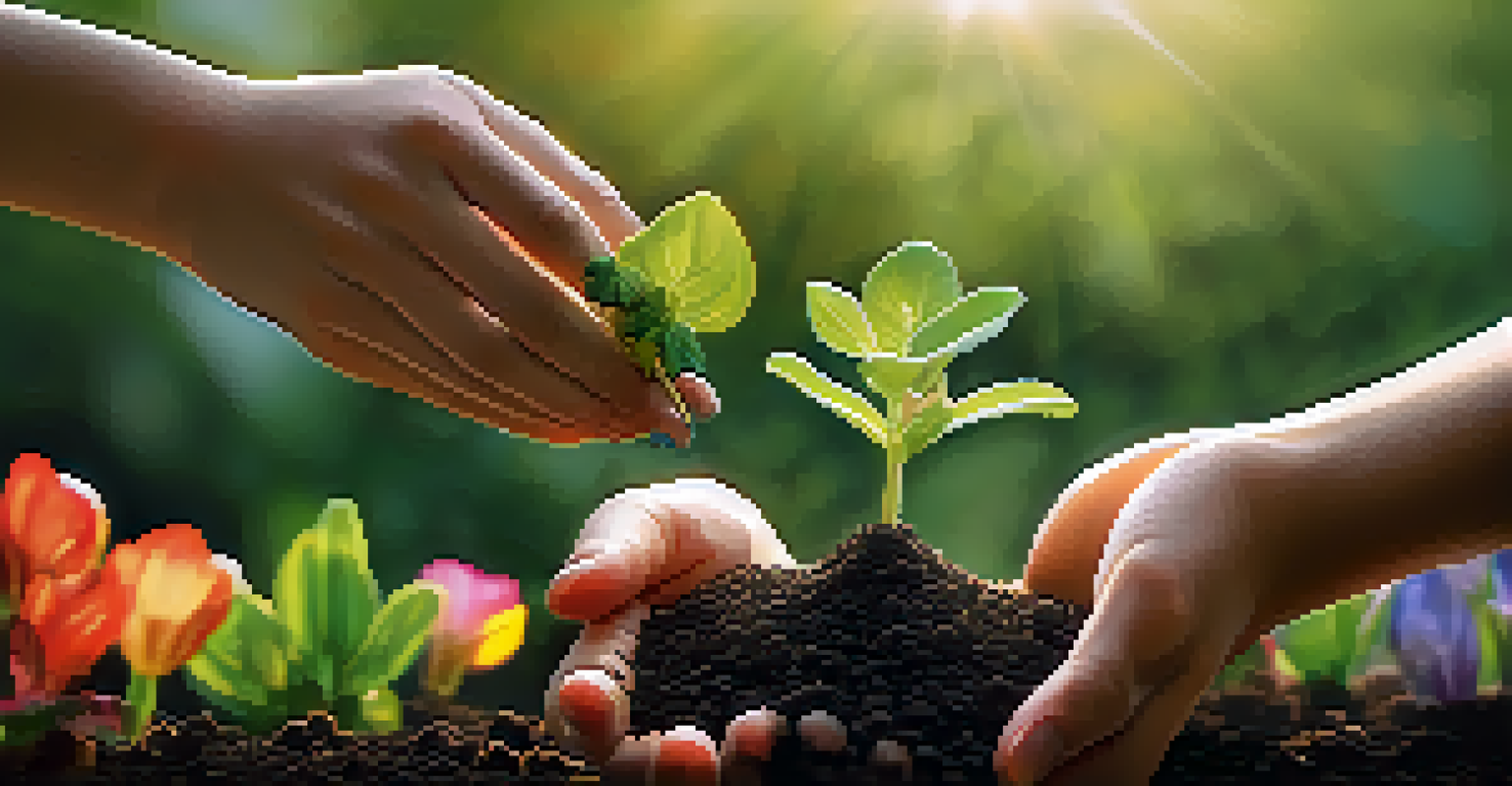Gardening for Health: How to Stay Active While Growing Plants

Why Gardening is a Fun Way to Stay Active
Gardening is not just about planting seeds; it's also a fantastic way to keep your body moving. Whether you're digging, planting, or weeding, each task requires physical effort that gets your heart pumping. Think of it as a workout disguised as a hobby!
Gardening adds years to your life and life to your years.
Unlike traditional exercise routines that can feel tedious, gardening offers a sense of accomplishment as you nurture your plants. You’re not just burning calories; you’re also creating a beautiful space that you can enjoy. Plus, it’s a great way to spend time outdoors, soaking up the sun and fresh air.
This blend of physical activity and mental relaxation can significantly improve your mood. So, if you're looking for a way to stay active that doesn't feel like a chore, grab a spade, and dig in!
Physical Benefits of Gardening for Your Body
Engaging in gardening can lead to several physical benefits, including increased strength, flexibility, and endurance. Activities like shoveling soil or lifting pots engage multiple muscle groups, giving you a full-body workout. Over time, this can enhance your overall fitness level.

Moreover, regular gardening can improve your cardiovascular health. As you bend, stretch, and move around your garden, your heart rate elevates, which is beneficial for your heart. It’s a natural way to get your daily dose of exercise without hitting the gym.
Gardening Boosts Physical Health
Engaging in gardening provides a full-body workout that improves strength, flexibility, and cardiovascular health.
And let's not forget about the added bonus of spending time in nature, which has been shown to reduce stress levels and promote relaxation. So, while your body is getting a workout, your mind is enjoying a peaceful escape.
Mental Health Benefits of Nurturing Plants
Gardening is not only an excellent way to stay physically active; it also works wonders for your mental health. The act of nurturing plants can bring about a sense of purpose and accomplishment. Watching your plants grow and flourish can boost your self-esteem and happiness.
To plant a garden is to believe in tomorrow.
Moreover, the repetitive tasks involved in gardening can serve as a form of mindfulness. When you focus on the simple, tactile actions of digging or watering, your mind can unwind from daily stresses. This meditative quality helps to reduce anxiety and improve your overall mood.
In fact, studies have shown that spending time in gardens can lead to lower levels of depression and anxiety. So, every time you pull a weed or prune a flower, you're not just enhancing your garden; you're also nurturing your mental well-being.
How to Start Your Own Garden for Maximum Benefits
Starting a garden doesn’t have to be an overwhelming task. Begin with a small plot or even a few pots on a balcony. Choose plants that are easy to care for, such as herbs or flowers that thrive in your climate. This way, you can gradually build your gardening skills without feeling stressed.
Plan your garden layout to include a variety of plants that require different levels of care. This not only keeps your gardening experience exciting but also ensures that you’re engaging in a variety of physical activities. For instance, some plants may need regular pruning, while others may require deeper digging.
Nurturing Plants Enhances Mental Well-Being
The act of gardening fosters mindfulness and reduces stress, leading to improved mood and lower anxiety levels.
Lastly, remember that gardening is a journey, not a race. Enjoy the process and the physical activity that comes with it. Celebrate small victories, like the first bloom or a freshly picked vegetable; these moments will motivate you to keep going.
Connecting with Others Through Gardening
Gardening can also be a wonderful way to connect with others and build community. Whether you join a local gardening club or participate in community garden projects, you'll be surrounded by like-minded individuals. Sharing tips, plants, and experiences enriches your gardening journey.
These social connections can enhance your overall well-being. Engaging with others while digging in the dirt can create lasting friendships and foster a sense of belonging. Plus, it’s an opportunity to learn from others who share your passion for plants.
Don’t underestimate the power of community gardening events, workshops, or even casual meet-ups at the local park. These gatherings can turn gardening into a shared experience, making it even more enjoyable and fulfilling.
Gardening as a Family Activity
One of the best things about gardening is that it's a family-friendly activity. Involving children in gardening can teach them valuable life skills, such as responsibility and patience. Plus, it’s a fun way to bond and create memories together as you plant seeds and watch them grow.
Consider assigning each family member their own plant or section of the garden. This way, everyone can take ownership of their little green space. It’s not just about the plants; it’s about working together, learning, and having fun outdoors.
Gardening Strengthens Community Bonds
Participating in gardening activities creates connections with others, fostering friendships and a sense of belonging.
Gardening can also spark interesting conversations about nature, science, and sustainability. So, while you’re digging and watering, you’re also planting the seeds of knowledge in your kids’ minds.
Tips for Staying Active While Gardening
To maximize the health benefits of gardening, it's essential to use proper techniques and stay mindful of your physical movements. Make sure to stretch before and after gardening to prevent any strains. Use ergonomic tools to reduce stress on your back and joints; this will help you enjoy gardening for longer periods.
Try to vary your tasks to engage different muscles. For example, rotate between digging, planting, weeding, and watering. This not only keeps your routine interesting but also ensures a well-rounded workout for your body.

Lastly, remember to listen to your body. If you start to feel fatigued or sore, take a break and hydrate. Gardening should be a joyful, rejuvenating experience, not a source of strain or discomfort.